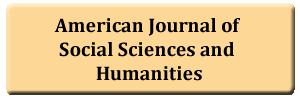Gender Inequality in Teaching and Teacher Education Programme: Assessment and Analysis of Anambra State, Nigeria
DOI:
https://doi.org/10.20448/804.4.2.184.190Keywords:
Gender, Inequality, Teaching, teacher, education, programme.Abstract
The research work deals on gender inequality in teaching and teacher education programmes: Assessment and analysis of Anambra State, Nigeria. A survey research design was adopted for the study. The population is made of six hundred and seven teachers and three hundred and fifty Nigeria Certificate in Education (NCE) students of NwaforOrizu College of education NsugbeAnambra State. Using stratified random sampling technique, three hundred (300) respondents were sampled for the study. The questionnaire was the major instrument for data collection and it was validated by experts in teacher education and measurement and evaluation. The mean statistics was used to analyse the data collected. The findings of the study showed that poor salary and poor condition of service of teachers, high rate of unemployed graduate teachers, teaching being considered to be women profession among other are some of the causes of poor enrollment of male students into teaching and teacher education programmes. The paper also discovered that: our schools have become a breeding ground for all kinds of social vices, imbalance in character molding of the young ones, reduction in students compliance to school rules and regulations as some of the effects of near absence of males in teaching and teacher education programmes. The paper concluded that adequate funding of education, improvement in teachers welfare and condition of service, provision of free and quality education among other will dismantle gender imbalance in teaching and teacher education programmes. Some relevant recommendations were made.



